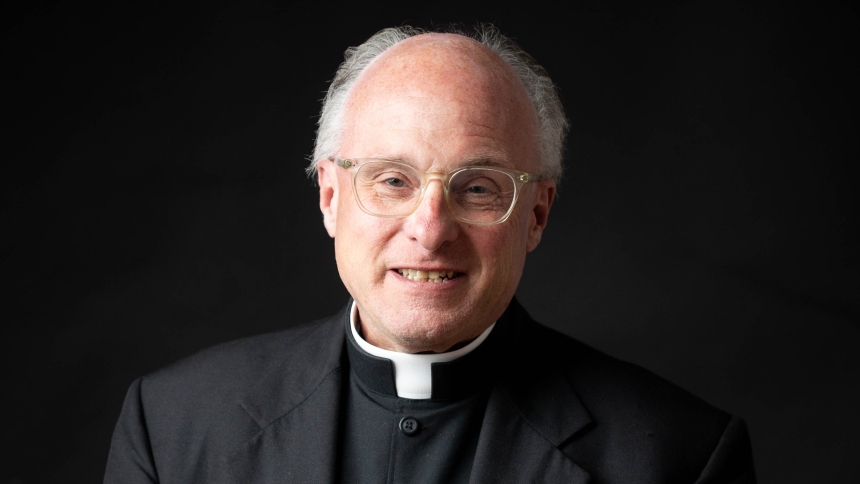
As published in the Northwest Indiana Catholic on February 4, 2018
We live today in a troubling tribalism of polarities. Conservative or liberal. Democrat or Republican. Poor or wealthy. Immigrant or native. Us or them.
Political leaders have aggravated these tensions to their own perceived advantage, often playing people off against each other instead of unifying our diversities into a harmonious whole. Respect for difference of religion, skin color, ethnic origin, economic status, political opinion, moral values and all of the varying traits which characterize our humanity seem to be in ever-shorter supply.
This “either/or” mentality has seeped into the Church in some ways as well. Conservative or liberal. Social justice or traditional spirituality.Pro-life issues or poverty issues. Doctrine or pastoral practice. Rigidity or fluidity. This world or the next world. Judgment or mercy. Welcoming people or challenging them.
The fundamental error of such dualities is the presumption that these realities are mutually exclusive - opposed to each other - that one must make a choice and come down on one side or the other. The beautifully organic tradition of Catholicism simply chooses to elude such false dichotomies by embracing a healthy integration, and so should we.
If the world wants to force us into an either/or corner, we stand in the freedom of a both/and posture. The Catholic faith embraces both Word and sacrament, both the divine and the human, both a hearty embrace of this world’s goodness and a hopeful eye on the blessed things to come in heaven. The faith embraces both a profound interior life and a zealous labor to transform injustice, both the consolation and the challenge of Jesus’ words, both the truthful judgment on sin and the surprising offer of mercy, both truth and love.
Holding in creative tension two realities, which at first glance may seem opposed, allows each to support and correct the other. Such balance prevents us from careening off into an erroneous extremism which damages both the practice of faith and the lives of people. Every heresy or false teaching in the history of the Church makes the mistake of lifting up one particular truth of the faith, but at the negation of another.
For example, Monophysitism so emphasized the divinity of Christ that it denied the fullness of his humanity. Quietism embraced the need to surrender to the absolute grace of God, but at the expense of our needed human response to the call of holiness. In our social and political commentary, in our public discourse and private conversations, sweeping generalizations damage intelligent conversation and nuanced conclusions.
How many times have we heard, “All Democrats think like…,” or “All conservatives are…”? Such hasty and unformed judgments allow us to complacently remain in our foregone conclusions but do not help us advance toward a practical realization of the common good, a societal flourishing, based on truth, love, justice, peace and compassion.
How easy to stay in our own little group, throwing barbs over the bow at those who disagree with us. How challenging, but ultimately fruitful, is the hard work of getting to know people and conversing with those who are different from us and may even be opposed to us.
One of the ancient titles for the Bishop of Rome, the pope, is “Pontifex,” Latin for “bridge-builder.” From the earliest centuries, Christians viewed the pope as the point of comm and unity, the successor of Peter who led the universal Church while serving the needs of the local communities.
Our country, Church and world today need more pontifexes, leaders who can literally bridge the gaps of division which wound and divide us. In our families, neighborhoods, schools, workplaces and parishes, how can each of us truly engage in this important task of unifying, strengthening and building up our brothers and sisters?
Was the early Church, which we, at times, seek to romanticize, always harmonious, peaceful and stress-free? No! A quick read of the Acts of the Apostles and Paul’s letters reveals deep differences of opinion regarding circumcision, baptism, authority and leadership. Some of the original heresies, such as Arianism, divided the Church for decades in a chaos of discord, exile and even violence.
The spiritual heroes of those challenging times are the leaders who stood resolutely grounded in the truth of Jesus Christ and his saving Gospel and were able to speak and act with love, compassion and courage, engaged with everyone in a sincere desire for the good of God’s people.
How impressive is the docility of Simon Peter, who accepts the authority of Paul and his teaching regarding the Gentiles! How inspiring is Athanasius, who remained true to the faith during the Arianism crisis, yet loved and forgave those who persecuted him.
In an age of opposing polarities, can we be the bridge-builders who bring people together around the One who unites, heals, forgives and loves us? Forgoing gossip, can we model honest conversation? Moving past tribalism, can we discover our common humanity? Does not every person desire the same things? Don’t we all seek joy, peace, meaning, love and purpose?
We all want to belong to a greater mission, know that our lives matter and that we both love and are loved. The Church is Catholic because when we are at our best, authentic differences only enhance the beauty of the Body of Christ.
+ Donald J. Hying



